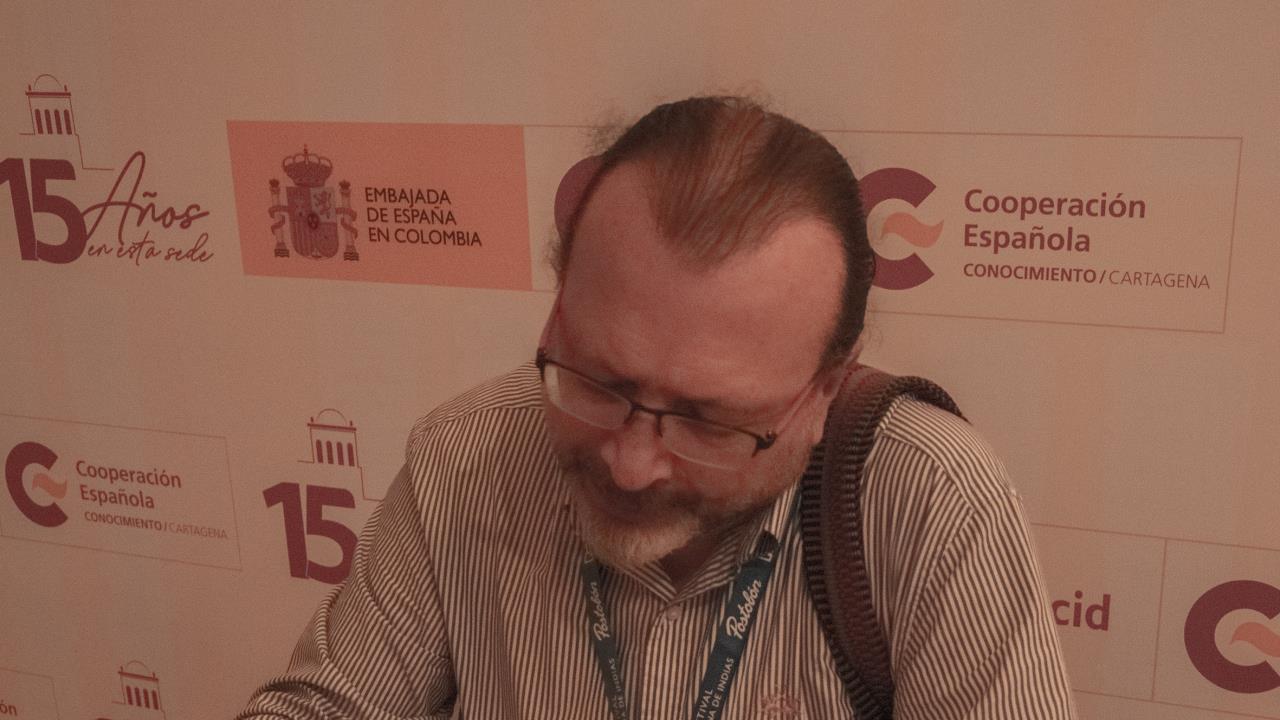
“Stories search for us,” said William Ospina in the courtyard of the old convent of Santo Domingo as he remembered the stories that his aunts, uncles and grandparents told him when he was just a boy, stories that were intimately connected to the land that surrounded them, stories of the world of farmers. His latest novel, Guayacanal, was created out of the necessity to tell these tails that were passed on from generation to generation, a sort of tribute to oral storytelling.
In conversation with the political scientist Sandra Borda, Ospina deconstructed the myths that prevail in the collective psyche of the Colombian people: we believe that Colombia’s history is of perpetual war, but Guayacanal situates itself in a golden age of 70 years of peace in the coffee growing region. We grew up with the notion of having 500 years of history to tell, an idea that “reveals a willingness to forget” not only indigenous cultures, but our relationship with the Earth. We have bought the American Dream of prosperity and abundance that nurtures itself from an infinite cycle of production and consumption, which is in reality, responsible for the violence towards our fellow man and nature that we don’t seem to be able to escape.
Ospina reflected in the direction of the new generations, how social and environmental crisis have resulted in a youth that doesn’t believe in politics, a youth that feels that the future is being stolen from them. His hope resides in the tendency that children have of reacting against what they have inherited from their parents. Nonetheless, he solemnly said: “What will force us to change drastically is not the risk of a catastrophe, but the memory of the catastrophe.” Sandra Borda wondered if Ospina is an optimist or a pessimist. “I hope for the best, I fear the worst,” concluded the renowned writer, as he was showered in applause.